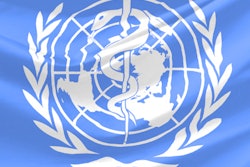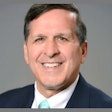
Almost half of the world's population has untreated oral diseases despite scientific and technological advances. Researchers explored the need for global solutions to address local oral health issues in a commentary published May 28 in the Journal of the American Dental Association.
"Thinking global, acting local" was a catchphrase coined by city planner Patrick Geddes in the early 1900s. The phrase was commonly used throughout the environmental protection movement of the 1970s. The phrase, however, is more relevant now than ever as it applies to mounting public health challenges that span national borders (JADA, May 28, 2022).
"Equally, local efforts to reduce risks and implement innovative solutions to common problems benefit from joint action and international collaboration," wrote the study authors, led by Dr. Habib Benzian of New York University.
Although oral disease is experienced individually, it is critical that healthcare professionals consider international components, especially how international trade regulations and global corporations affect the availability of unhealthy food and beverages in every country.
The U.S. has the highest annual per capita expenditure for oral health, yet the population's oral health leaves much room for improvement. The study authors suggest that perhaps the U.S. could benefit from solutions developed elsewhere to address common challenges.
As previous research has shown, populations with higher incomes generally see decreases in oral health disease, while populations with lower incomes generally seek care in emergency departments, from oral health professional volunteers, or not at all. Unmet need, combined with unhealthy practices, is both a global and local challenge requiring both global and local solutions.
The Lancet Commission on Oral Health, FDI World Dental Federation's Vision 2030, and the National Institutes of Health's report, which is titled "Oral Health in America: Advances and Challenges," suggest a comprehensive global reform agenda to address some of the challenges. Fundamental to these improvements are a workforce of 2.5 million dentists as part of a total of 4 million professionals.
Currently, conditions and regulations governing dental practices, licensing, standards of care, and other legal and professional provisions are determined locally or nationally. The commentary's authors emphasize that international policies and priorities are critical to providing frameworks and guidance to both governments and professional organizations.
As a recent and significant milestone in addressing global oral health, the World Health Organization's global strategy for oral health was adopted by all 194 member states in May.
By connecting global and local issues within dentistry, oral healthcare within the U.S. and other countries can be better understood. Global policies and debates, like environmental concerns and antimicrobial resistance, affect local care delivery. In connecting global and local issues, new perspectives may emerge to address local challenges, Benzian and his team wrote.
"Only if we are 'globally competent' are we able to be 'locally relevant' for the best possible prevention and care for patients and communities, in line with the idea of thinking global and acting local," Benzian et al concluded.


















